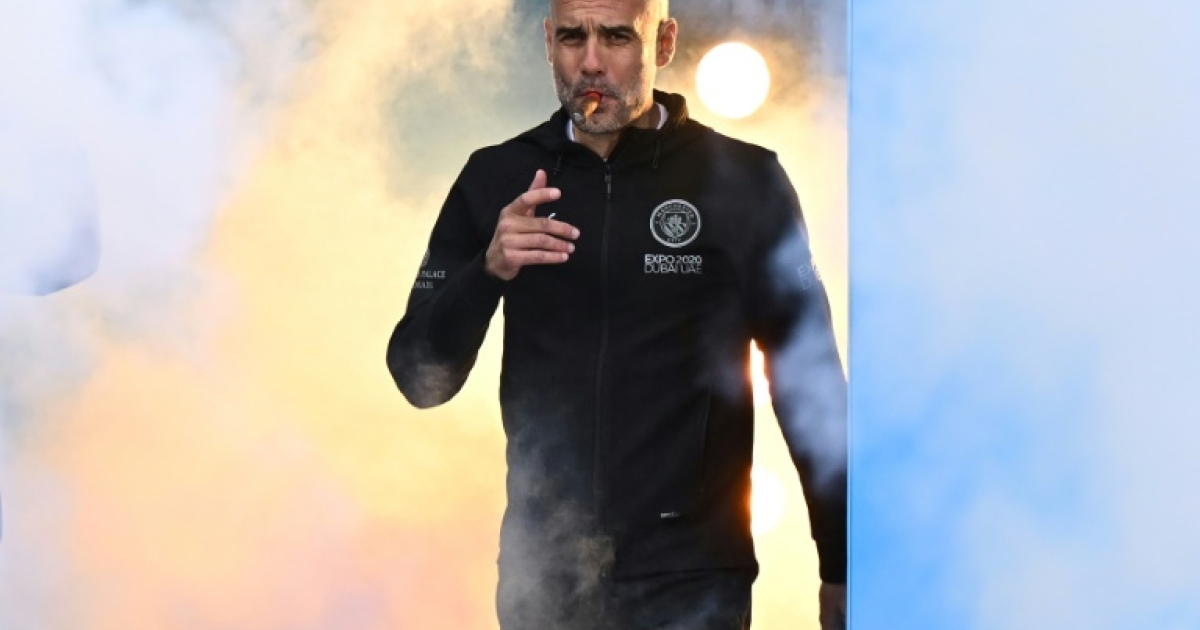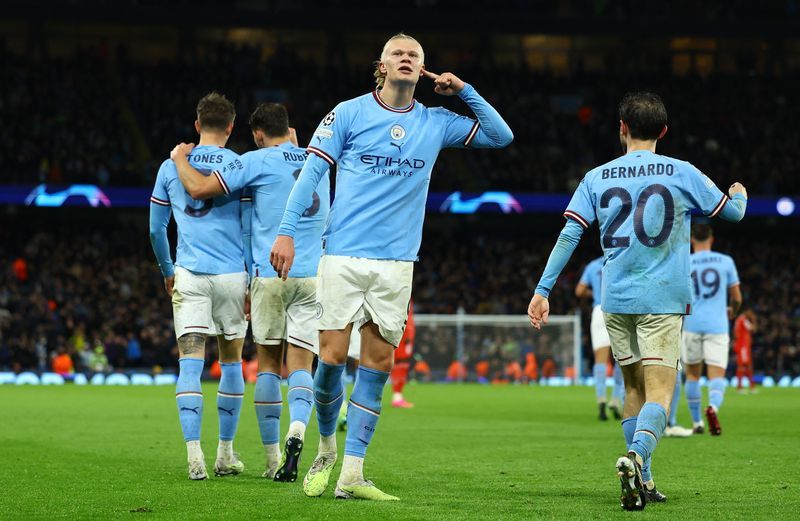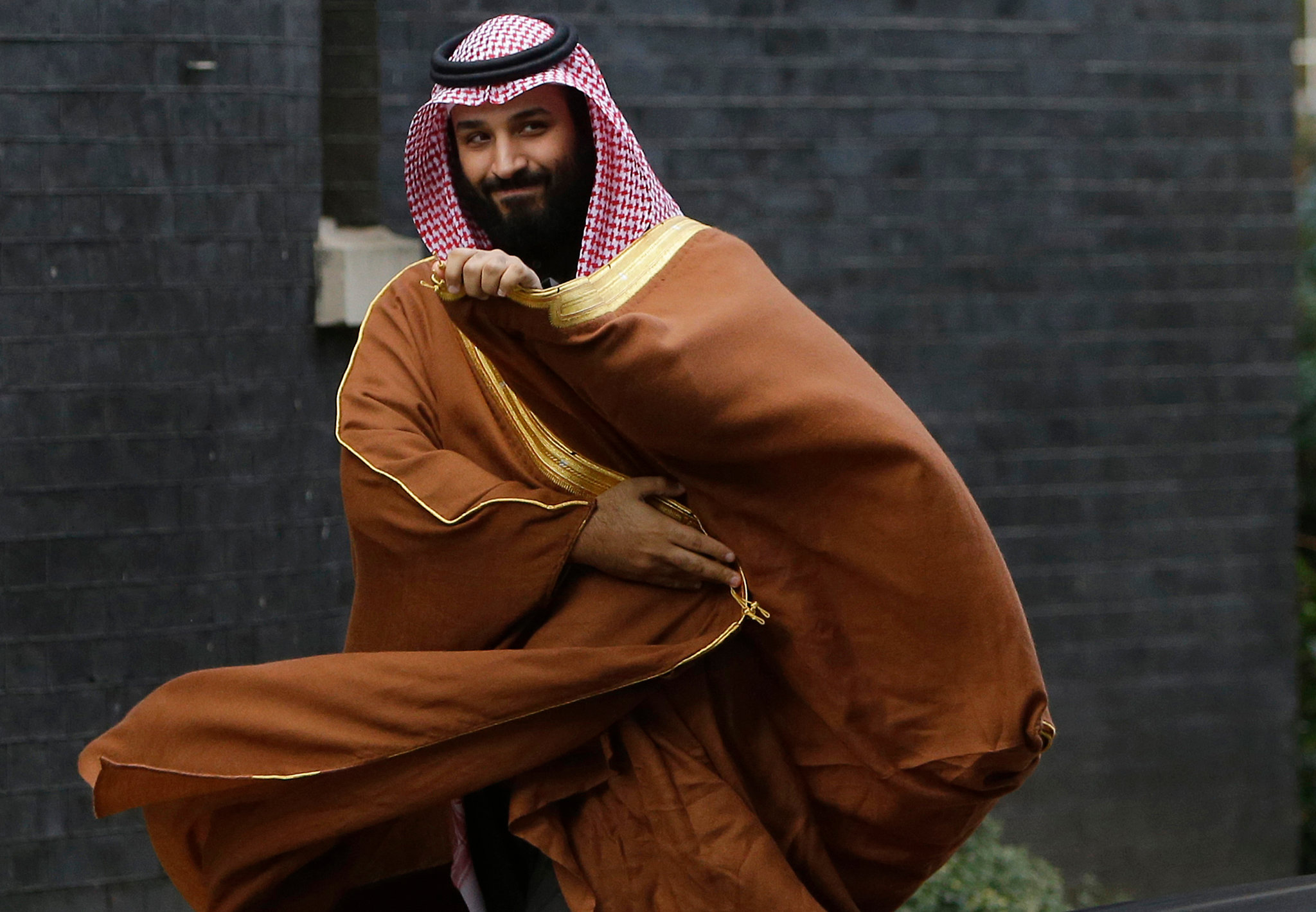Tackling the “ Oil Money” Slur: Manchester City, Saudi Arabia and Football’s Odyssey in the East
Very few stories in the annals of football history strike a chord with the stunning upsurge of Manchester City. A rise, elevated to the realms of unshakable dominance with the arrival of the tactical maestro Pep Guardiola, is on the verge of reaching a historic milestone if their calculations go right at Istanbul on the 10th of June: winning the treble. Seizing the Premier League from Arsenal astonishingly and clinching the FA Cup against their arch-rivals with unyielding composure means all it takes is one more win to rewrite their history—a testament to the years of unwavering dedication and relentless hard work they have poured into their journey.

While anyone can adore the glitz from a distance and hastily attribute Man City’s success to money, the underlying blueprint shows a different reality far from those envious assumptions. Such an unwarranted mock has necessitated the relentless pursuit to confront the racist slur that has been unjustly hurled at the Club and its passionate fans since the historic ascent of the new ownership in 2008: the derogatory label of ‘Oil Money’.
Orientalist Undertones: Intolerance against the Arab Ownership
Few could have predicted the profound impact that September 1, 2008, would have on the club—the day when Sheikh Mansour bin Zayed Al Nahyan, through Abu Dhabi United Group (ADUG), completed the historic takeover, ushering in a new era for the club.
A massive turning point, under Sheikh Mansour’s ownership and chairman Khaldoon Al Mubarak’s strategic acumen, Man City experienced a remarkable ascent to the upper echelons of English and world football. This transformative journey was marked by a comprehensive overhaul of the club’s ecosystem and culture, both on and off the field. The ambitious plan of the new ownership, supported by significant expenditures on transfers, coaching personnel, and infrastructure, was centred on long-term success.

Bound by a shared dedication, their loyal fans, players, staff, and youth academy united as one, wholeheartedly embracing this ambitious project. In short, years of unwavering commitment from every facet of the club brought Man City to the precipice of making history.
However, there is one persistent spectre that continues to haunt their success up to date, and that’s the derogatory label of ‘Oil Money’. It was a racist accusation centred on City’s Arab ownership and nothing less. Hence, let us now examine the data and facts that dispel this false belief and reveal the reality.
The “Oil” in the Money
Tell me a club that runs without money, and I’ll abolish my pursuit now. Regarding the City, the main criticism wasn’t even directed at their new ownership, resources, or the strategic investments made by the City Football Group (CFG). Instead, it focused on the proprietors’ ethnic origin, which is where the “Oil” comes from. In other words, such criticism also derives from Man City’s enviable success and the tremendous pride it inspires in its supporters, and it is not only racially insensitive but also unfounded. Let me simplify.
Transfer Spending
Rivals fans and media go berserk when Man City spends €100 million or two on the transfer window, yet conveniently turn a blind eye when other clubs engage in similar spending. Chelsea, under their new owner, the 48-year-old American businessman Todd Boehly, made a remarkable splash in the latest season (2022/23) by signing an extensive roster of 21 players for a startling sum of €612.5 million, setting a new record for the highest spending by any club in a single season.
However, you will not hear or see anyone point the finger at the “money” spilt, much less question Boehly’s nationality or where his money comes from. Nobody should, yet that is the source of the hypocrisy.
Now, let’s take a journey back in time and delve into the extravagant transfer spending of Europe’s elite teams over the past decade.
Spending from 2013/14–2022/23
(The transfer spending of the leading European football clubs, as compiled by Football Transfers, is outlined below)
- Manchester City – €1,702.3 million
- Manchester United – €1,588 million
- Chelsea – €1,977.3 million
- Arsenal – €1,106.3 million
- Liverpool – €1,093 million
- Real Madrid – €1,088.5 million
- Barcelona – €1,614.3 million
- Bayern Munich – €793.5 million
If you have a closer look, one thing is for certain. All clubs except Bayern have amassed spending over 1 billion, with Manchester United and Barcelona coming just a sliver of millions away from City. Furthermore, despite sporadic mockery of Pep’s “buying success,” Manchester City’s net spend after his arrival stands at just €667 million, while their rival United’s net spend during the same period nears a massive billion euros at €902 million.
Even more astonishing is Chelsea’s covert surpassing of City, stealthily ascending to the pinnacle of the transfer spending chart, edging ever closer to an astounding €2 billion milestone. Puzzled? There’s more.
 Haaland
Haaland
Wage Bill of European Elite Clubs (2022/23)
(The wage bills of the leading European football clubs for the present season, as compiled by Planet Football, are as outlined below:)
- Paris Saint-Germain – €397.1 million
- Barcelona – €320.7 million
- Real Madrid – €281.3 million
- Bayern Munich – €266.7 million
- Manchester United – €251.3 million
- Chelsea – €187.7 million
- Manchester City – €180.5 million
- Juventus – €158.5 million
- Atlético Madrid – €158 million
- Liverpool – €156.9 million
Surprised? That’s my point. Not only do Manchester City find themselves in a modest 7th position among the top ten clubs in Europe, but they also lag behind their domestic rivals, Chelsea and Manchester United, a fact that often goes unnoticed and unmentioned.
If money were the sole determinant of success, most clubs would lead the race across Europe. However, it isn’t. This is where Manchester City’s project shines brightly and sends a powerful message to the world: Money doesn’t automate success. Instead, an unwavering dedication to a culture rooted in excellence, the instillation of a champion mindset, and the technical elegance of Pep Guardiola worked in perfect harmony to produce the dominant on-field performances we are currently witnessing.
FFP Breaches
Diving into the Financial Fair Play Regulations realm, it’s worth acknowledging the storm of allegations that engulfed Manchester City five years ago. It all began when a riveting investigation by a German media outlet, fueled by the work of a Portuguese computer hacker named Rui Pinto, cast a glaring spotlight on the club’s financial dealings. It is an allegation rooted in an unofficial and unethical source to start with.
Based on this alleged data, UEFA decided to take action, and City were banned by UEFA from European competition for two seasons and fined €30m in February 2020. But Man City successfully challenged the ban in the Court of Arbitration for Sport (CAS), ultimately emerging victorious with the ban being overturned and the fine reduced to just €10m (£8.9m).
It is also important to note that both UEFA and the Premier League alleged that Man City did not provide accurate financial information for them, relying instead on unofficial sources rather than the factual information previously provided by the club. The case is still ongoing, and let’s wait until the final verdict.
Both Man City and Pep have been open to the investigation and are ready to challenge the allegations with complete transparency, and there’s nothing to hide. Reacting to the news, Pep spoke to the media in February 2023, saying:
“Maybe we did something wrong, everyone will know it, and if we are like we believe we are like we have done as a club for many years in the right way, then the people stop talking about that. We would love it tomorrow.
Hopefully, they are not so busy, and judges can see it listen to both sides, and ultimately decide what is the best. Because in the end, I know firmly that what we won on the pitch, we deserve it; I don’t have any doubts.”

More Clarity on FFP
Despite popular assumptions, FFP is actually designed to safeguard clubs from financial turmoil, which might threaten their long-term survival. It is a regulation restricting the clubs from spending more than their revenues, rather than the misconceived notion of “spending too much” or “injecting oil money”.
According to the law, clubs are permitted by UEFA’s Financial Fair Play regulations to spend up to 70% of their total revenue on player salaries, transfers, and other football-related costs. FFP takes on the role of a vigilant guardian, aggressively defending football teams’ financial integrity and lifespan but lacking the romantic concepts of a socialist utopia.
To summarize, the concern of spending “too much” applies when it’s systemically off the books or everyone is criticized equally. Every big team spend money, but very few enjoy the success. We live in a world where Real Madrid was ‘hailed’ as the “Galacticos” (for spending massively to land stars), and Man City is ‘abused’ as the “Oil Money” club. We also live in a world where football is a working-class sport run by the rich. So, let’s agree that such ironies exist and abandon the hypocrisies of selective criticism.
Unending Prejudice and Stereotypes
Intolerance towards the Middle East and the East was also vividly displayed during the recent Qatar World Cup. The unjustified attacks on Qatar and their authorities, right from the venue announcement, revealed a deep-rooted prejudice. This orientalist attitude, viewing the East as inferior, was particularly evident in the harsh criticism they faced, surpassing that of previous World Cup hosts.
An array of instances ranging from the BBC’s boycott of the inaugural and closing ceremony, the racial attacks against Moroccan players (for their cultural expressions), the mocking of Qatar Sheikh’s gesture of gifting an Abaya (cloak) to Messi (as a symbol of respect after his World Cup win)—all stood as distressing reminders of the derogatory taunts unleashed by the West against Qatar.
Despite these undesirable initiatives, it seems that football is moving eastward. With the 2022 FIFA World Cup having been a resounding success for Qatar, another player from the ME, Saudi Arabia, has emerged as a new contender and is actively attempting to draw attention to the East in football.

The Rising East: The New Frontiers
Spain’s remarkable emergence onto the football scene and their triumphant streak of three consecutive trophies from 2008 to 2012 captivated and delighted the football world. The victory shed light on a hidden but undeniable catalyst—the profound influence of FC Barcelona and their renowned youth academy, La Masia, from which a significant portion of their side hailed.
Similarly, Saudi Arabia’s stunning victory over the superior Argentina team during the most recent World Cup demonstrated the remarkable success of the Saudi club system.
Most winners proudly represented Al Hilal, further establishing their relevance on the international stage.
The triumph showcased the success of the Saudi club system, as the majority of the victorious players hailed from Al Hilal. This remarkable team, which reached the Club World Cup semi-finals earlier in 2022, barely fell short against Chelsea.
Saudi Arabia’s captivating rise continues, with these milestones serving as a springboard for even greater ambitions. Already slated to host the 2023 FIFA Club World Cup and the 2027 AFC Asian Cup, they are also part of a joint bid with Egypt and Greece for the 2030 World Cup. The pursuit of footballing superstars like Cristiano Ronaldo, Karim Benzema, and Ngolo Kante has further fueled the excitement surrounding their remarkable journey. Notably, the audacious pursuit of Leo Messi has also stirred widespread discussions in the footballing world, though they ultimately came up short.

These initiatives demonstrate that Riyadh views sports investments as a national priority, in addition to establishing itself as a regional and international sporting hub. All of this expansive vision is based on Saudi Arabia’s Vision 2030, an ambitious project of youth-oriented reform.
Contrary to Western assumptions, the East is not only inundated with passionate football fans but also finds itself home to some of the world’s most ambitious socio-economic transformation programs.
Last but not least, in the ever-evolving world of football, where prejudices and stereotypes persist, let us embrace a future where diversity and inclusivity thrive and the beautiful game knows no boundaries. Together, we can dismantle these destructive walls, paving the way for a genuinely global footballing community that celebrates the shared passion and joy that unites us all.
The views expressed in this article are personal.


